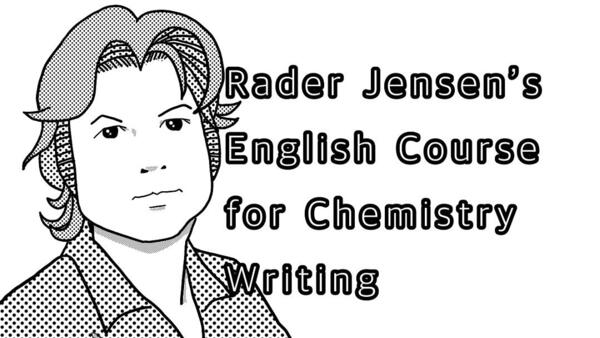CSJ Journals
[化学論文のための英語講座] 第37回:動名詞と不定詞 Part4
(English version is here.)
動名詞と不定詞 Part 4 使い分け
動名詞とto不定詞は相互に書き換えられる場合がありますが、意味が変わる場合、または片方しか使わない慣用句がある場合もあります。以下の例文を見てみましょう。
動名詞は前置詞の目的語として利用できますが、一般的にto不定詞では前置詞が重なるため、前置詞の目的語として使いません。
1. There was concern about overreacting.
訳文:反応が進みすぎることが懸念されました。
2. There was concern about to overreact.
解説:例文1と意味は変わらないかもしれませんが「about」と「to」が重なりますのでちょっと違和感があります。
動作(行為)について語るときはよく動名詞を使います。
3. Refluxing was continued for 2 hours.
訳文:還流を2時間続けました。
4. To reflux was continued for 2 hours.
解説:例文3と意味は変わらないかもしれませんが、to不定詞は適切ではありません。to不定詞は目的を表すときによく使いますので、違和感が生じます。
以下の動詞では、目的語に動名詞を用いることが多いです。
admit, advise, avoid, be worthwhile, consider, deny, discuss, finish, have difficulty, have problems, have trouble, imagine, keep, mention, mind, miss, recommend, quit, suggest, understand
以下の動詞では、目的語にto不定詞を用いることが多いです。
afford, agree, appear, arrange, ask, care, decide, demand, expect, fail, hope, learn, manage, mean, offer, plan, prepare, pretend, promise, refuse, seem, wait, want, wish
以下の動詞では、動名詞とto不定詞を相互に書き換えられます。意味は変わりません。
begin, continue, intend, prefer, start
以下の動詞では、動名詞とto不定詞を相互に書き換えられますが、意味が変わる場合があります。
forget, remember, stop
意味はどう変わるでしょうか。例文を見てみましょう。
5. He forgot to lock the door.
訳文:彼はドアの鍵をかけるのを忘れました。
解説:かけるつもりだったけど、忘れて、かけなかった。
6. He forgot locking the door.
訳文:彼はドアの鍵をかけたことを忘れました。
解説:かけたけど、かけた記憶がない。
以上2つの例文の「forgot」の代わりに「remembered」を使っても、同じ使い分けになります。
7. The graduate student stopped drinking coffee.
訳文:大学院生がコーヒーを飲むのを止めた。
8. The graduate student stopped to drink coffee.
訳文:大学院生がコーヒーを飲むために休憩した。
注意:以上は絶対的規則ではありませんが、使い方を覚えておくと便利です。
次回はミニコーナーです。
Gerunds and Infinitives Part 4 Proper Use
Gerunds and to infinitives can at times be interchanged, but there are cases in which the meaning changes or idioms in which only one can be used. Consider the following example sentences.
Gerunds can be used as the object of a preposition, but in general, to infinitives overlap with the preposition and are not used as such.
1. There was concern about overreacting.
Explanation: This sentence is correct.
2. There was concern about to overreact.
Explanation: This probably suggests the same meaning as example 1, however, to and about overlap making it awkward.
Gerunds are often used when talking about actions.
3. Refluxing was continued for 2 hours.
Explanation: This sentence is correct.
4. To reflux was continued for 2 hours.
Explanation: This probably suggests the same meaning as example 3, but a to infinitive is inappropriate. To infinitives are often used to show a goal or purpose and thus are awkward in this case.
The following verbs are often used with gerunds as an object.
admit, advise, avoid, be worthwhile, consider, deny, discuss, finish, have difficulty, have problems, have trouble, imagine, keep, mention, mind, miss, recommend, quit, suggest, understand
The following verbs are often used with to infinitives as an object.
afford, agree, appear, arrange, ask, care, decide, demand, expect, fail, hope, learn, manage, mean, offer, plan, prepare, pretend, promise, refuse, seem, wait, want, wish
With the following verbs, gerunds and infinitives can be used interchangeably without changing the meaning.
begin, continue, intend, prefer, start
With the following verbs, gerunds and infinitives can be interchanged, however, the meaning can change.
forget, remember, stop
How does the meaning change? Let us look at a few examples.
5. He forgot to lock the door.
Explanation: He intended to lock the door, but forgot, and did not lock it.
6. He forgot locking the door.
Explanation: He locked the door, but has no recollection of doing so.
Using the above examples but replacing forgot with remember, the same difference is seen.
7. The graduate student stopped drinking coffee.
Explanation: The graduate student was drinking coffee but stopped.
8. The graduate student stopped to drink coffee.
Explanation: The graduate took a coffee break.
Note: These are not absolute rules, but they are useful to remember.
We will post mini corner at next time.
